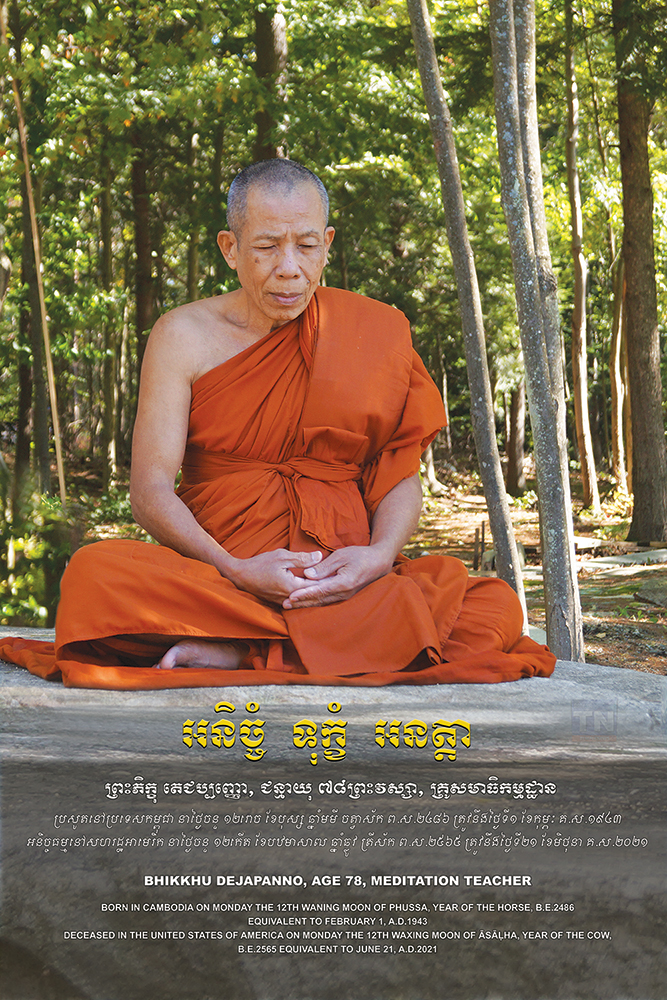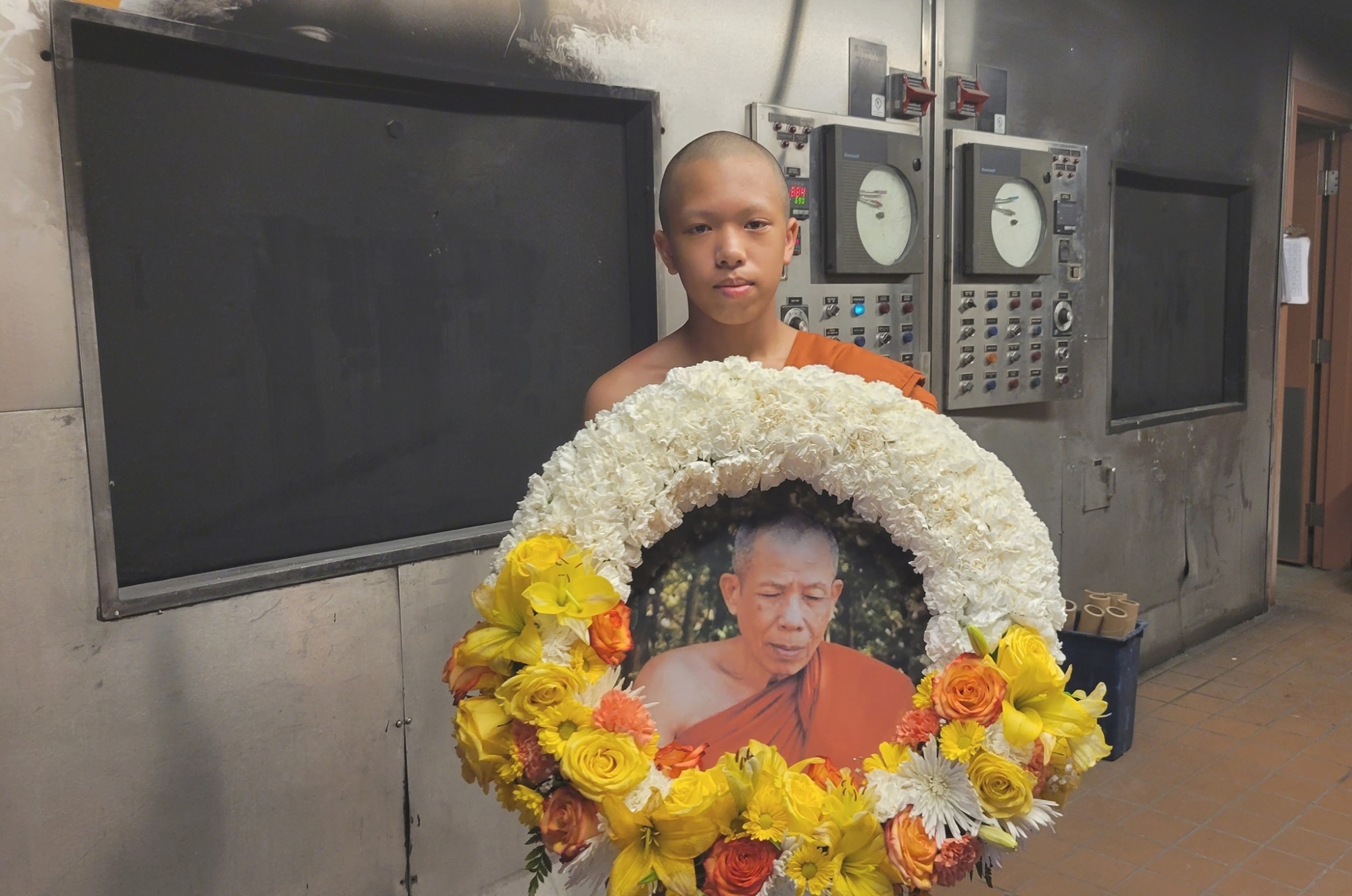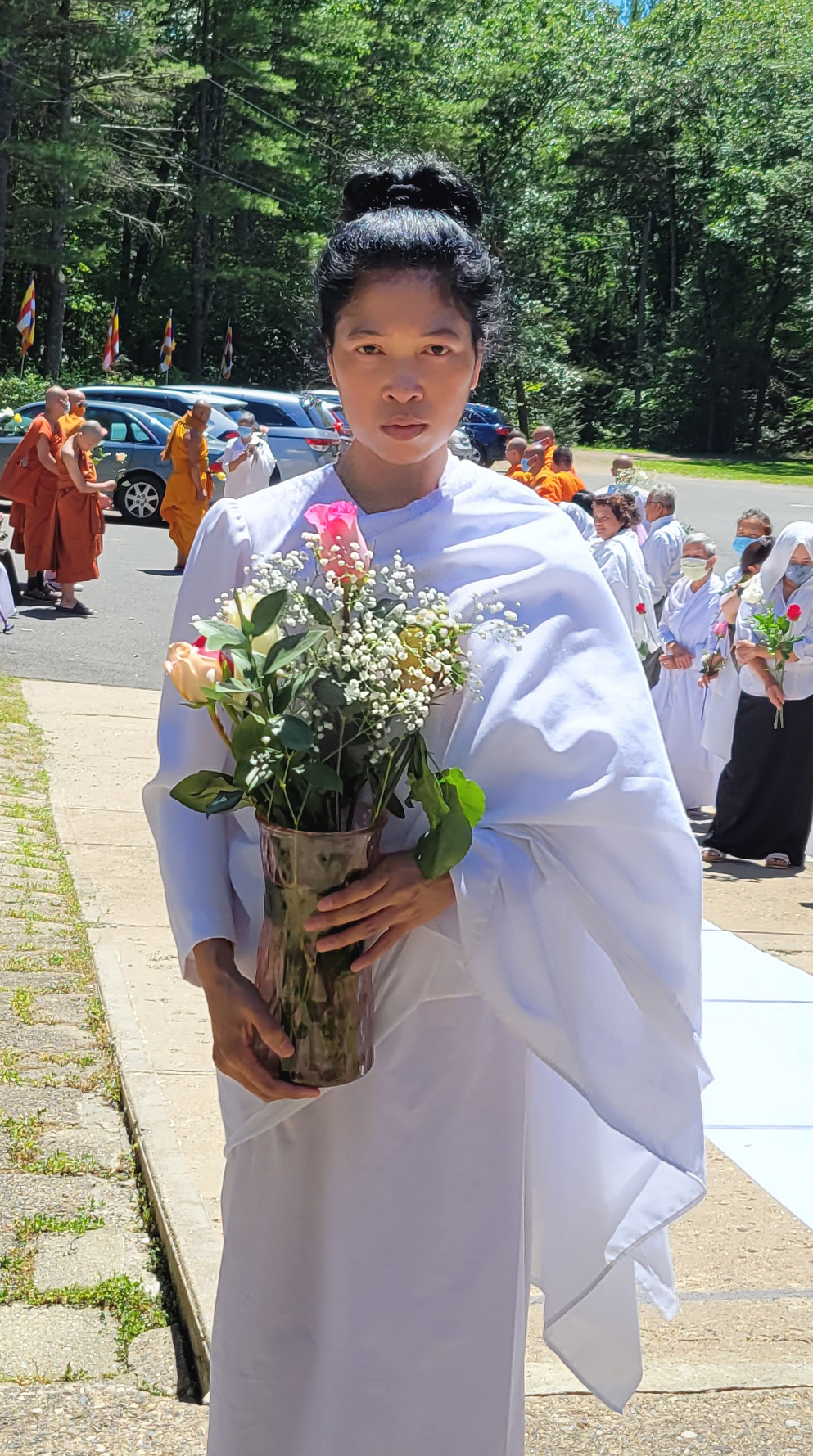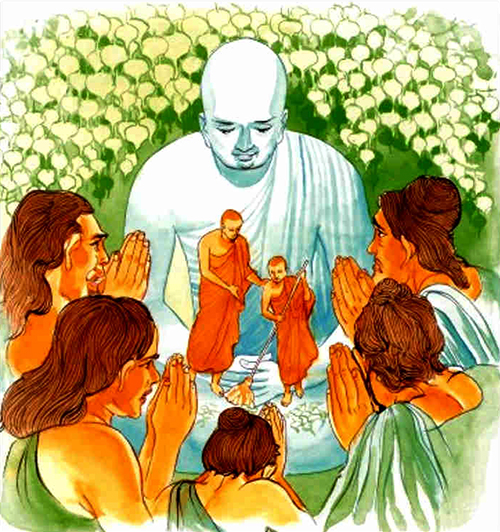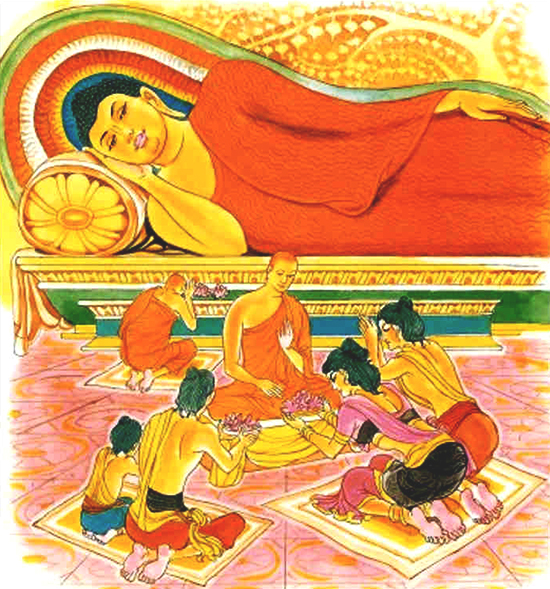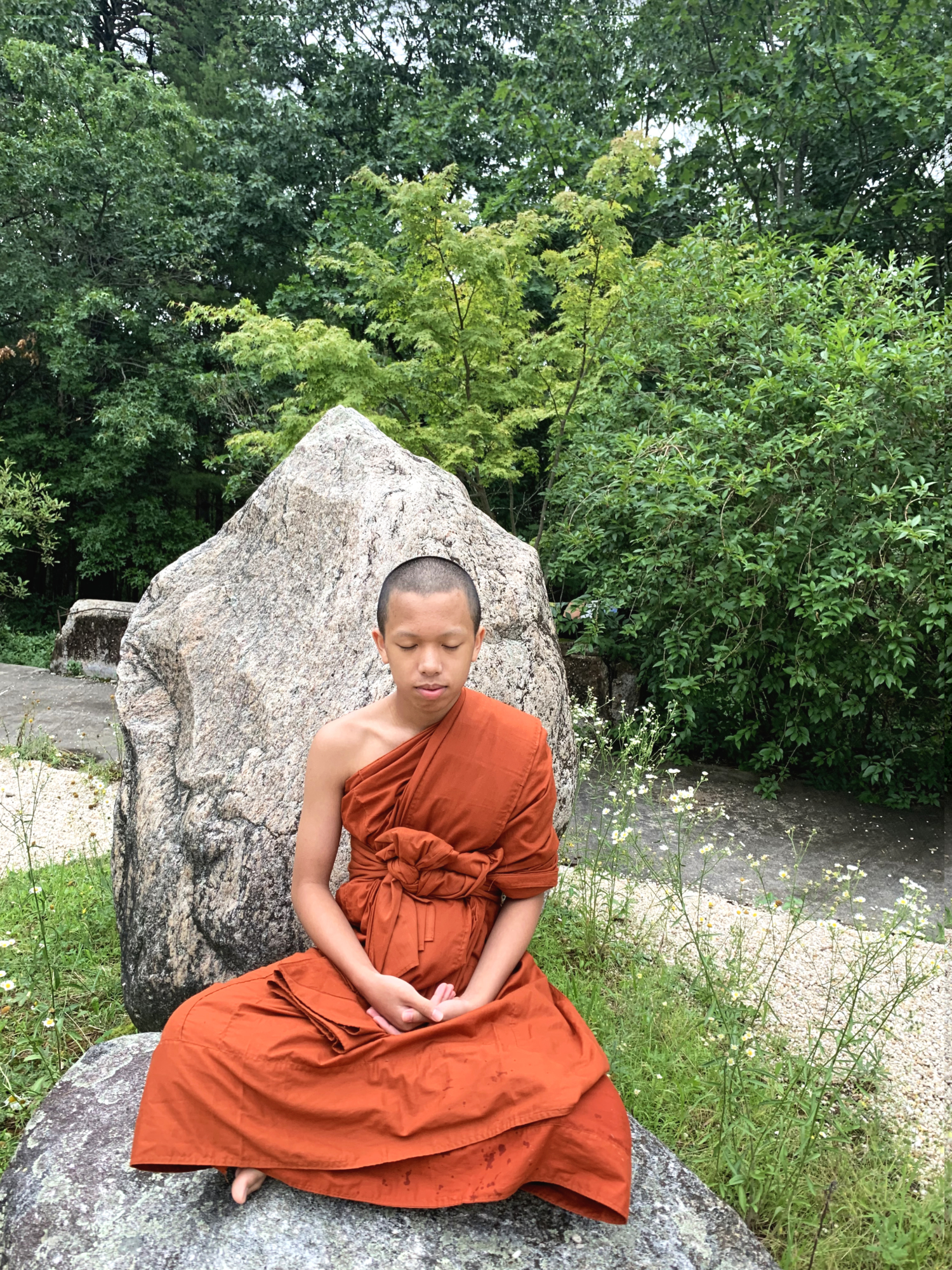Remembering my meditation master Ven. Dejapanno
Bhikkhu Dejapanno Phorn Pheap (Meditation teacher)
February 1, 1943 – June 21, 2021
On Sunday, May 30, 2021 my family and I went to pick up my meditation master Ven. Dejapanno Phorn Pheap, Ven. Buddha Saddha Vey Ve and Ven. Indajoto Trang Dong at Wat Kiryvongsa Bopharam, Peace Meditation Center for the ceremony at the graveyard of my late uncle Yoeun Nget. It was raining very hard that day. We arrived at the temple around 8:30 am, but were told by Ven. Buddha Saddha that Ven. Dejapanno could not go to my late uncle’s graveyard because he was literally unconscious in his room. After that, Bhikkhu Buddha Saddha called me to go inside my master’s room for a short while just to witness the scene.
Ven. Buddha Saddha and Ven. Indajoto were the first two monks who found Ven. Dejapanno unconscious in his room. They found him lying on the floor during wellness check (because Ven. Dejapanno did not show up for breakfast). Mr. Piseth Kien, president of the temple, arrived at the scene shortly before my family and I got there.
Bhikkhu Buddha Saddha, Bhikkhu Indajoto, Mr. Piseth Kien, and Mr. Sakal Kim went inside Ven. Dejapanno’s room and called an ambulance to examine him. When the EMTs carried my master to the ambulance, I followed them just to see if my master was conscious. After seeing his eyes, I felt relief knowing he’s awake because his eyes were blinking. And I was told that his life was not endangered.


